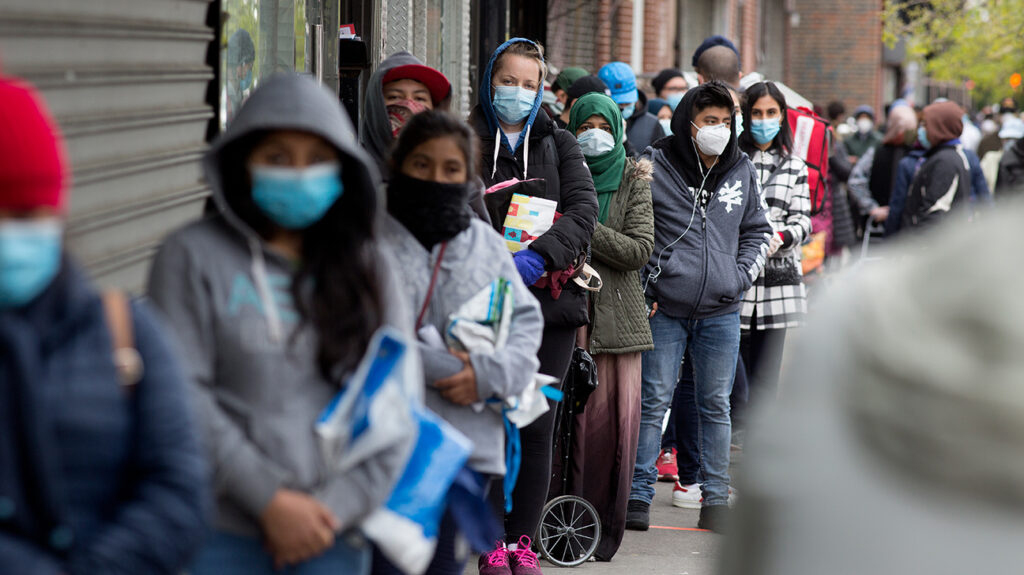click to dowload our latest edition
CLICK HERE TO SUBSCRIBE TO OUR NEWSLETTER


Published
2 years agoon
Israeli Professor Manfred Green is optimistic that we are in the latter stages of the COVID-19 pandemic, although he admits we’re not getting rid of coronavirus so easily.
“We need to prepare for a much wider spread with possible new variants. That’s the possibility,” said Green, a professor of epidemiology at Haifa University. “We are watching out for these new variants. It’s still a major health threat, but we could be seeing the beginning of a milder epidemic.”
Green, the founding director of the Israel Centre for Disease Control and a University of Cape Town alumnus, was speaking on 18 January at a Telfed-organised webinar titled, “The COVID-19 Pandemic: when will it ever end?”
Based on what we have seen from pandemics in the past, coronavirus should lose some of its virulence as it spreads, he said. “That’s not unusual. Pandemics eventually end, although I’m not going to go into the Black Death or something which could go on for many years. I’m talking about in recent times.
“We know now that because of the variants in the current pandemic, people who have been sick from the one virus can actually get sick again from the other virus. In other words, if you got sick from Delta and recovered from it, and you get infected by Omicron, you can get sick, usually with a milder disease because you have some memory. But it’s still not enough to prevent the disease entirely. So, one of the problems is how we are going to deal with the disease. Because of these variants, it’s not something that will go away quickly.”
Vaccinated people can transmit the disease because, as Green explained, “You produce antibodies in your blood, but not where the virus actually enters the body.” The virus, he said, can get into the nose and throat. It then replicates, which doesn’t infect the vaccinated person, but can pass the disease onto others.
“The big question we’re asking ourselves is whether this disease will become seasonal like flu,” said Green. “If that happens, it will no longer be an all-year-round phenomenon. It will exist for a couple of months of the year, and hopefully will be much milder.”
He described the possibility of the normality of pre-COVID-19 life returning at the end of the pandemic as “very unlikely”.
“We probably need to get used to living with what we call a ‘new normal’ and living with COVID-19 as another flu-like seasonal disease,” he said. “If there’s an effective vaccine, an acceptable level of morbidity and mortality, and what we call tolerable moderate restrictions during the season, I would think we would still want to suggest, if it was seasonal, maybe use masks. I would think it would be a good idea to use masks in closed spaces in the winter months.”
He said the best new vaccines would be ones such as an intranasal vaccine because they produce antibodies where the virus goes into your body. “Those are the most effective, similar to the oral polio vaccine, which produces antibodies in the gut, where the virus usually enters the body.”
Vaccine hesitancy is making controlling the pandemic more difficult, Green said. “People who aren’t vaccinated are actually giving the virus the opportunity to spread widely and mutate.
“The vaccines are effective, even though we may need to give multiple doses. We shouldn’t be too concerned about giving multiple doses. The new treatments look very promising. We need the co-operation and compliance of the public. The bottom line is that we [in Israel] aren’t facing a national disaster, as some would say.
“The pandemic or epidemic in Israel has now reached the stage where it’s very difficult to control the spread. It’s such an infectious virus. All of you have probably experienced the fact that you’ve done everything you thought was right, yet you got infected. What we’re trying to do now is basically smooth out the numbers and make sure hospitals aren’t overwhelmed.”
Green gave some interesting facts about COVID-19. “There are seven coronaviruses that have infected humans. The coronavirus comes from animals. In this case, it might have come from a bat. Seven coronaviruses have changed enough to infect humans. Four of those cause a common cold.
“Some of them are caused by other coronaviruses, one being SARS [severe acute respiratory syndrome] in 2003. Probably because that disease was so severe and we were able to isolate patients very quickly, the actual virus disappeared. It’s very unusual, but it did. One causes MERS [Middle East Respiratory Syndrome], which is seen mainly in camels but does cross over to humans. That has pretty much been limited to Saudi Arabia and the Middle East. For some reason, it hasn’t spread very widely.”
Although the current pandemic has had a much lower mortality rate than the 1918 influenza pandemic, there weren’t the same kind of facilities and medications in the early stages of the 20th century.
Green believes the two pandemics resemble each other in many respects. “The Influenza virus became endemic and less lethal, and it’s still with us,” he said. “The same influenza we have today, which we call the H3N2 and the H1N1, is basically the great-grandchild of the 1918 virus. It’s the same virus. It has just mutated. In other words, COVID-19 may develop into a virus which will hopefully produce milder disease, become seasonal, and remain pretty much indefinitely.”
